Discover Why Expats Fall in Love with La Paz: Top 6 Reasons
Moving to a foreign country to start a new chapter of life can be thrilling and nerve-wracking. However, the reasons
It can be challenging to take the leap and become an expat. Our family has done just that, and it’s been a journey! We want to share our story with you, hoping it will inspire you to take the plunge too. Why did we choose to become expats? What were some of the challenges we faced? Why did we finally decide on Mexico as our destination? And what caused us to start a website hoping to be a “one-stop-shop” for expats?
Keep reading for all the answers – and comment if you have any questions!

The word expat is the shortened version of the word expatriate. Now that I got the “captain obvious” statement out of the way, let’s look at how the Merriam-Webster dictionary defines the word, expatriate:
So, an expatriate is someone who leaves their native country to live permanently in a new country. They can range from those seeking a lower cost of living to those looking for job opportunities or retirement options in a foreign country. In other words, an expatriate is someone looking for a different life in another country.
Years ago, when I first started hearing the word expat I thought it only applied to people from one country, my home country, the United States. As if American expatriates are the only people in the entire world looking to leave their native country. At this point, we have met expatriates from practically all first-world countries, excluding the first-world countries from the middle east and China.
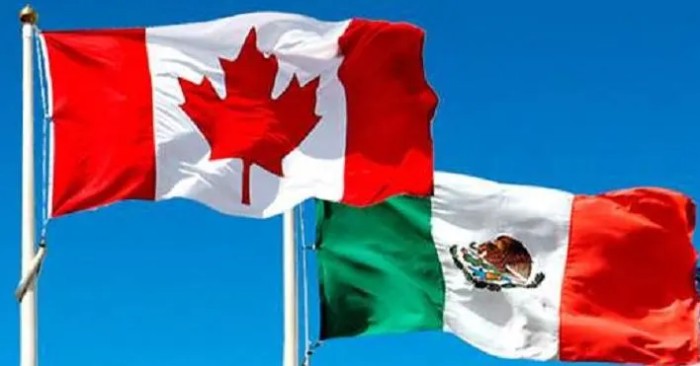
Moreover, in the Riviera Nayarit region of Mexico, Canadian expatriates vastly outnumber the American expatriate population. Moreover, we have recently seen an influx of expatriates from western Europe, Australia, and New Zealand. The expat community here in Puerto Vallarta is becoming quite diverse.
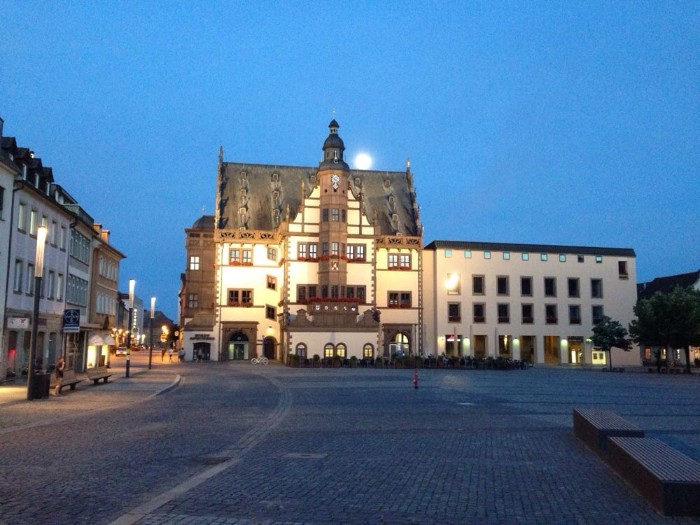
My journey to becoming an expat began in 2001 when I joined the US Army. I always wanted to see Europe. Therefore, when I was told Germany was a duty-station option, I jumped on the chance to live abroad in a foreign land. Germany was a gracious host country with incredible people, with a fantastic culture. I couldn’t have asked for a better introduction to living abroad than being stationed in Schweinfurt, Germany.
Despite living in Germany for 3 years and traveling to several other countries during my time in the army, I wasn’t exactly living the expat life. However, this was where the first expatriate seed was planted.
The cultural differences between the countries in European I visited and the US fascinated me. From my experience, the mindset of the citizens in the US and the citizens in Europe countries are polar opposites. This is particularly true in how European people and companies valued work-life balance much more than in the state.
I found that the European employees were being cared for by their companies better than their counterparts in the US. Vacation time, for instance, is looked at in completely different ways. For example, the US is the only industrialized country without statutes to ensure all working citizens are guaranteed at least some vacation time. European governments have legislation providing their citizens with a certain amount of vacation time. Many countries’ laws dictate that companies give up to 30 days of leave. In some counties, this is mainly paid leave, with a few even having the entire mandated vacation time spent.
They handle maternity leave better than the US too. US law only protects the new mother with 12 weeks of unpaid leave. Conversely, 41 countries worldwide, including most of Europe, meet the 12-week standard by the US. These countries mandate paid leave for the mother.
Moreover, most of these countries have optional paid paternity leave(with a lesser percentage of salaries paid out), with Finland leading the way with a staggering 143.5 weeks of optional paid maternity leave.
These experiences made me realize that people living in other countries often have a better quality of life than the average American. This wasn’t easy to accept. I grew up hearing that the US was the undisputed best country in the world, with no other country coming close. However, this highlighted other nations have legitimate arguments for that title.

In 2018, I had a deep sense of foreboding that we were at a critical junction regarding living in America. Divisiveness amongst citizens had reached an unprecedented level. The media and entertainment industries have only added fuel to the fire by weaponizing almost every issue they can find.
The situation has become incredibly volatile, with each side increasingly entrenched in their beliefs. It’s clear that the America I grew up in during the ’80s – ’90s no longer exists today. It is simply not the same country anymore.
Therefore, my family found themselves in front of a metaphorical crossroads. One road leading to us staying in a homeland on a dangerous trajectory, hoping things get better, or taking the path less traveled: finding a new country to raise our family.
We opted for the road less traveled, which was bumpier than we expected, with ups and downs.
Costa Rica was the first place that we looked at. After all, Costa Rica was the first country you hear anyone say they would live in if they left the US. Costa Rica is an incredibly trendy destination for Americans looking to become expatriates. And has been for a long time.
However, popular destinations for expats, digital nomads, and international tourists come with higher prices over time. The Costa Rican cost of living had increased enough to remove them from consideration in our top group. However, living there still had enough benefits to keep them in the second tier for our expat adventure.
We were told to look at Panama as another central American country. One of the reasons was the benefits involving taxes in case we ever wanted to start a company. The income tax rate is 15-25% after the first 11,000 USD. However, you don’t pay taxes on income made outside the country. Another reason is that there is a major international airport where many connecting flights to other countries in Central and South America connect, leading to a lower cost for plane tickets.
That said, Panama was also put on the second tier of our expat destination list. Moreover, ours expanded to include Columbia and Ecuador in South America and just about every country in SE Asia outside of China, Japan, and the two Koreas.

My wife’s friend and her husband decided to pack up and spend their retirement years in Ecuador. She told us we should consider this beautiful country in the Andes. After hearing her talk about the benefits for expatriates in Ecuador, we decided to book a trip in early 2019.
Here were most of the major talking points we were told by our friends about Ecuador
When you decide to look at a country for a potential expat residence, taking a trip for an extended period is imperative. We took a trip for a month (which is the minimum you want to go with in this situation), visiting the capital city of Quito, the coastal town of Montanita, and the fantastic city of Cuenca.
Your friend was not overselling either.
The natural beauty of Ecuador is awe-striking, and its people are truly unique. The age and beauty of Quito and Cuenca’s “el centro” regions are amazing. Evidenced by both being protected as a United Nations Educational, Scientific and Cultural Organization World Heritage Site.
After returning home, we knew that Ecuador would be our expat home.
Well, that didn’t work out. It reminds me of an old saying, “man plans, and god laughs.” Meaning that no matter how much we plan, life is still very much unpredictable.
My wife was pregnant when we went to Ecuador and had our daughter on February 20th, 2020… Just before the world was flipped on its head.

We were lucky and got our daughter a passport right before that process became a nightmare. However, shortly after getting the passport, countries worldwide, including almost all of South America, started locking themselves down. This made entering foreign countries on an expatriate exploration trip impossible or challenging.
So once again, it was back to the expat drawing board.
With division in our home country at an all-time high, it was less than ideal to see most of our expat options shrivel.
However, some places had options still allowing you to enter without spending most of your trip in quarantine. This was helpful because it is hard to judge if a country is a good match for you from a hotel room. Thankfully, the Mexican, Costa Rican, and some SE Asia governments had policies allowing us to take a 5 week’s trip without spending most of the journey in a hotel quarantine.
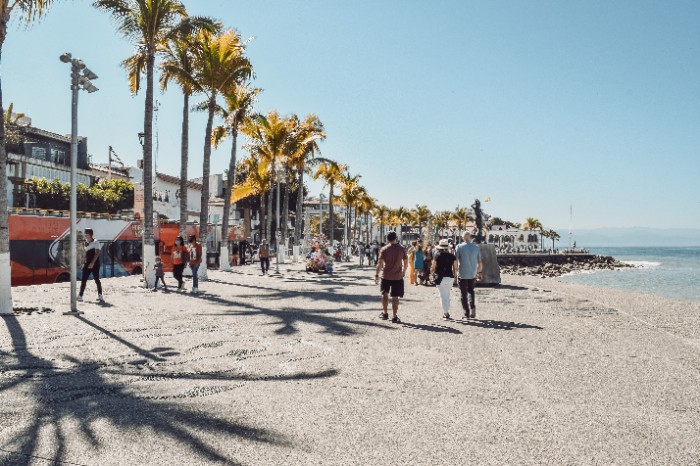
Ultimately, we choose America’s southern neighbor as our next place to look at for our expat adventure.
The process for the extended trip was the same as we did in Ecuador, with one exception. We were not looking at multiple cities in Mexico, unlike Ecuador. Instead, we only checked out the expat destination of Puerto Vallarta. This made sense with the planet’s current state; traveling between multiple cities was just not an option in October 2020.
Like everywhere else, Puerto Vallarta has its pros and cons for expatriate immigrants. I will explore this in much more detail in future blogs. I also plan to write follow-up articles that continue our story from the time we landed in PV. Our time in Puerto Vallarta was interesting and includes having a baby here. Hence, allowing us to receive permanent residency, and making our youngest a duel citizen. So, I will not get into our time here in PV right now.
Upon returning home, we decided to get our thing in order and eventually sold our house, car, and most of our belongings. Then bought a storage unit for the remainder of our stuff. Finally, we bought a one-way ticket to Mexico in early 2021 to leave our home country.
Let’s start with what we learned about the pre-expatriate research part of the expat voyage. There are a lot of excellent resources about more prominent expat communities or popular countries for expats. Moreover, there are many blogs, articles, and even Vlogs about the feel or vibe of an area. Additionally, there is also a lot of good information on current visa and immigration processes for many popular expat destinations.
However, there are only so many great ways to simultaneously compare and contrast popular expat cities and nations. You will likely need to find several blogs/expat content creators to get a feel for the places you are looking at places from across the planet.
First and foremost, we are striving to bring you ample information from our blogs about every city and country we eventually are in. This will range from personal story pieces, like this one; written by myself of other expats. There will also be strictly informative blogs about things like different countries’ immigration policies, the best way for an American expat to avoid culture shock, or the best countries’ for low cost of living ect.
During this long process of becoming an expat, we also found that virtually no matter where an expat goes they will need help with the following:
These are just a few things examples expats find themselves needing. The list of things an expat will eventually need help with after relocating is vast. Moreover, one of the biggest fears we hear from others living the expat life is the fear of being taken advantage of or being ripped off when dealing with finding a professional to help them.
The good news is plenty of trustworthy, reliable professionals offer services to help expats. Although the bad news is these people are largely word-of-mouth or have a social media page or small website, that is challenging to find. This leads to frustration from expats in need of figuring out who to turn to when they need help.
Here at Next Stop Abroad, we are building networks of trusted local professionals who provide services an expat will often need. These professionals are independent contractors in a variety of fields. Moreover, we vet each professional we get referred to help elevate the stress of finding a good professional in whatever field you need as an expat.
We have a mix of English-speaking local and expatriate employees working for NextStopAbroad. Having fellow expats on board, allows us to better understand the needs of an expat living away from their native country. Additionally, having local nationals working for the site also makes it more easy find and vet the local professionals.
We are starting our networks in 3 locations in Mexico ( Puerto Vallarta, Sayulita, La Paz, and their surrounding areas), but plan to expand into the other popular cities for expats in Mexico. To do so we will hire a City manager for each new city. They will be tasked with vetting the professionals and dealing with the day-to-day inside the city. This will include sitting down with any expat needing a consultation.
We then expand to more foreign countries. The reason is simple, the problem of finding trusted professionals is commonplace in almost all popular expat destinations. Most local professionals simply don’t spend time and money building a personal business website, at the most, you will find some have social media accounts. However, most are word of mouth.
Therefore, expanding into as many countries expats like to immigrate to will make it easier for more people looking to become expats to make that a reality for themselves. And at the end of the day, that is what we are all about here. Helping people make their lives better by making it easier to live in places that are better for them than where they are currently living.
You can find out more about our network in upcoming blogs or by going to the about us section.
Moving to a foreign country to start a new chapter of life can be thrilling and nerve-wracking. However, the reasons
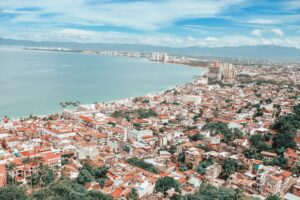
Explore the allure of Puerto Vallarta, a vibrant expat hub on Mexico’s Pacific coast. Discover its scenic beauty, rich cultural
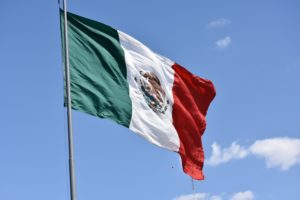
significant shift has been observed in global migration trends in recent years, with a noticeable number of individuals from “developed

It can be challenging to take the leap and become an expat. Our family has done just that, and it’s